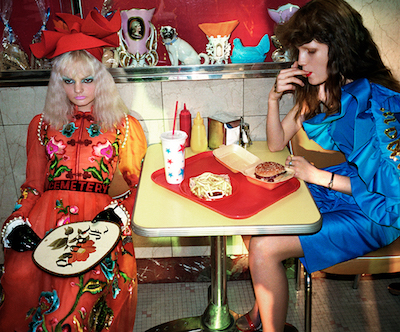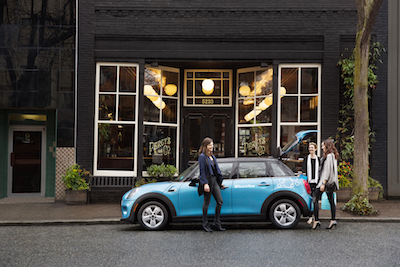 Image courtesy of Taj Hotels Resorts and Palaces; emerging affluent consumers are planning more international trips in the coming year
Image courtesy of Taj Hotels Resorts and Palaces; emerging affluent consumers are planning more international trips in the coming year
Consumers who are close to achieving traditional wealth are largely positive about the status of their countries’ economies, according to a new report from Sotheby’s International Realty. The majority of emerging affluent consumers believe that their nations’ economies are currently strong and headed on the right track. Beyond confidence in their national finances, consumers are showing an optimistic outlook for their own economic situation, creating opportunities for the luxury industry.
"The Sotheby’s International Realty brand is a thought-leader in the luxury space and we are invested in both broader market research and specific trend analysis," said Kevin Thompson, chief marketing officer at Sotheby’s International Realty Affiliates LLC.
"This report was intended to focus on the key decision drivers for an important segment of consumers who are looking to buy a home within the next three years," he said. "As illustrated in the report, the global perspective the of emerging luxury consumer is reflective of overall trends in the global economy, and as such they are an important audience for the Sotheby’s International Realty brand.
"The strong consumer confidence of this particular group illustrated in the report reflects the intrinsic value of living a luxury lifestyle and at the same time the trends presented are indicative of the evolution of the luxury industry as a whole." Sotheby’s International Realty’s “Global Affluence: The Emerging Luxury Consumer” report surveyed consumers in the United States, United Kingdom, India, the United Arab Emirates and China with investible assets between $250,000 and $1 million. Confident consumers Of the countries studied, India displayed the highest level of consumer confidence, with 100 percent saying they could afford both what they need and what they want. With consumer sentiment high across the board, the U.K. came in last place with 93 percent positive about their personal financial situation. This signals hope for the luxury market, which has faced flattened growth due to a difficult economic climate (see story). Consumers' optimistic outlooks are contributing to spending more on experiences, according to Sotheby's research. These consumers eat at restaurants an average of 4.78 times a week, with 87 percent planning to dine out more often in the coming year. They also travel internationally for leisure an average 5.56 times a year, with 87 percent also planning more trips abroad in the coming year. Gucci spring/summer 2017 campaign
When it comes to purchases of hard luxury goods, these emerging affluent individuals favor brands such as Rolex, Omega and Cartier. In handbags, Gucci and Chanel are the most preferred labels.
This backs up earlier research by RBC Capital Markets, which found that affluent Chinese audiences favored Gucci and Chanel over peer labels.
Kering-owned Gucci has seen a resurgence of interest among fashionable affluents in part because of the brand’s aesthetic overhaul under the direction of Alessandro Michele. The revitalization of the brand’s codes via Mr. Michele’s use of motifs and its uptick in digital marketing has lead to Gucci being selected as the top brand choice for Chinese women in the market to buy high-end handbags or shoes in the next year (see story).
Automotive brands that resonate the most with this set are BMW and Audi.
Gucci spring/summer 2017 campaign
When it comes to purchases of hard luxury goods, these emerging affluent individuals favor brands such as Rolex, Omega and Cartier. In handbags, Gucci and Chanel are the most preferred labels.
This backs up earlier research by RBC Capital Markets, which found that affluent Chinese audiences favored Gucci and Chanel over peer labels.
Kering-owned Gucci has seen a resurgence of interest among fashionable affluents in part because of the brand’s aesthetic overhaul under the direction of Alessandro Michele. The revitalization of the brand’s codes via Mr. Michele’s use of motifs and its uptick in digital marketing has lead to Gucci being selected as the top brand choice for Chinese women in the market to buy high-end handbags or shoes in the next year (see story).
Automotive brands that resonate the most with this set are BMW and Audi.
 BMW's ReachNow mobility service
Property plans
Another result of this consumer confidence is the desire to purchase a home in the near future.
Consumers were varied in their plans, but in each country, the affluent individuals had plans to purchase a home within the next three years.
India again led the field, with 95 percent of respondents looking to buy a home within three years. Those surveyed from the U.K. were least likely to purchase within a three-year period, with 76 percent identifying real estate plans.
In most countries, less than half of consumers across all countries see themselves buying a home within the next year, with only 13 percent of United Arab Emirates respondents noting plans. The outlier is China, where 53 percent project they will purchase a property in the coming year.
BMW's ReachNow mobility service
Property plans
Another result of this consumer confidence is the desire to purchase a home in the near future.
Consumers were varied in their plans, but in each country, the affluent individuals had plans to purchase a home within the next three years.
India again led the field, with 95 percent of respondents looking to buy a home within three years. Those surveyed from the U.K. were least likely to purchase within a three-year period, with 76 percent identifying real estate plans.
In most countries, less than half of consumers across all countries see themselves buying a home within the next year, with only 13 percent of United Arab Emirates respondents noting plans. The outlier is China, where 53 percent project they will purchase a property in the coming year.
 Sotheby's listing in Beijing
While most of these affluent consumers agree on their plans, they have varied motivations for wanting to buy a home.
Those in the UAE feel they are doing well in their jobs, with many expecting a promotion. They also look at a home purchase as a means to diversify their assets.
Chinese respondents, on the other hand, are looking out for their family while also keen on seeing a return on their investment.
Those from the U.K. and India noted the current state of their respective housing markets as an impetus for buying. Meanwhile, those from the U.S., U.K. and India say they have reached the right point in their lives to buy a home, saying they are also seeking a property that fits with their lifestyle.
Some of the popular types of homes these affluent buyers are looking for include urban environments, sustainable designs and waterfront locations.
When affluent consumers are looking into real estate purchases, a home that needs renovations is not a significant area of interest, with only 5 percent of luxury buyers being interested, according to a report by Luxury Portfolio International.
A new report from Luxury Portfolio International revealed that only 15 percent of affluent buyers are interested in already renovated older homes. When purchasing a new home, the realtor is just as important as the home itself, with many consumers explaining they want an emotional connection with someone who is the best-of-the-best and understands their needs (see story).
Real estate firms would also be wise to innovate to reach this consumer, as Sotheby's has done with Google Maps technology and Apple TV (see story).
"The impact of digital integrated marketing cannot be understated," Mr. Thompson said. "For the emerging luxury consumer, engaging with cutting-edge technology is part of their everyday lives and often part of how they define their lifestyle."
Sotheby's listing in Beijing
While most of these affluent consumers agree on their plans, they have varied motivations for wanting to buy a home.
Those in the UAE feel they are doing well in their jobs, with many expecting a promotion. They also look at a home purchase as a means to diversify their assets.
Chinese respondents, on the other hand, are looking out for their family while also keen on seeing a return on their investment.
Those from the U.K. and India noted the current state of their respective housing markets as an impetus for buying. Meanwhile, those from the U.S., U.K. and India say they have reached the right point in their lives to buy a home, saying they are also seeking a property that fits with their lifestyle.
Some of the popular types of homes these affluent buyers are looking for include urban environments, sustainable designs and waterfront locations.
When affluent consumers are looking into real estate purchases, a home that needs renovations is not a significant area of interest, with only 5 percent of luxury buyers being interested, according to a report by Luxury Portfolio International.
A new report from Luxury Portfolio International revealed that only 15 percent of affluent buyers are interested in already renovated older homes. When purchasing a new home, the realtor is just as important as the home itself, with many consumers explaining they want an emotional connection with someone who is the best-of-the-best and understands their needs (see story).
Real estate firms would also be wise to innovate to reach this consumer, as Sotheby's has done with Google Maps technology and Apple TV (see story).
"The impact of digital integrated marketing cannot be understated," Mr. Thompson said. "For the emerging luxury consumer, engaging with cutting-edge technology is part of their everyday lives and often part of how they define their lifestyle." 